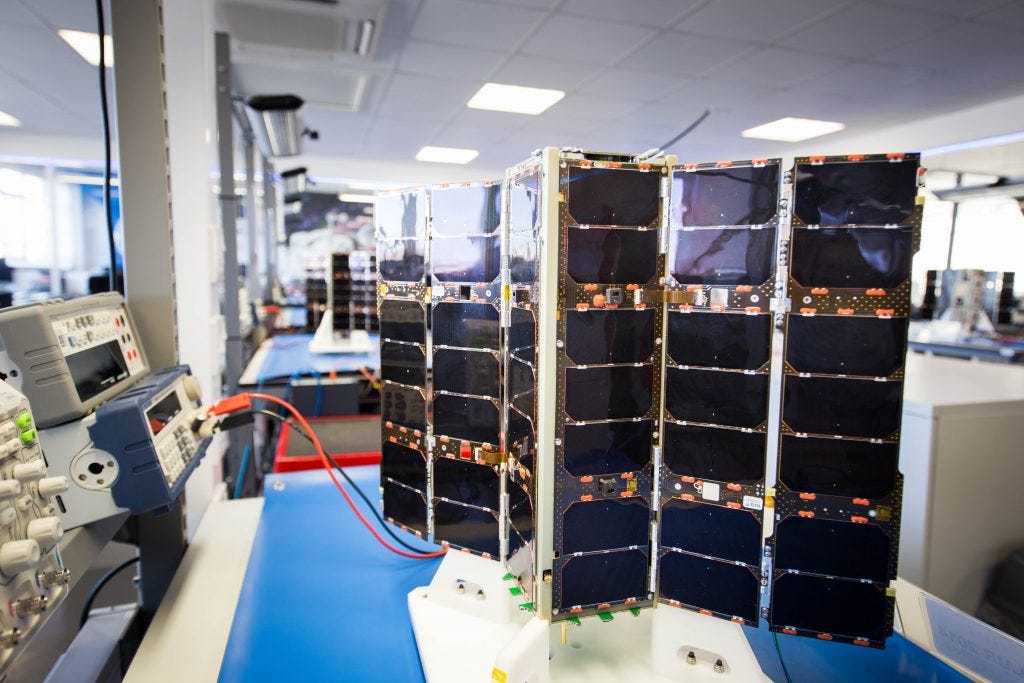I first connected with Peter Platzer in 2012 during the early days of Spire, before any of the company’s nanosatellites were actually in space. We hit it off immediately, and very quickly this led to an investment by us at Fresco Capital. There are many teams with big dreams, but Peter and the Spire team are one of the few teams that consistently execute those big dreams. In addition to launching and managing a constellation of nanosatellites, the satellite-powered data company has built a truly global business with offices across Asia, Europe and North America.
Here’s a recent Q&A I had with Peter.
When most people think of satellites, they think of very large and expensive projects that only governments can afford. What has changed in the past 15 years and why?
Nanosatellites are about the size of a bottle of wine and since 2014, there have been more nanosatellites launches than traditional large ones. With nanosatellite being far more affordable, this has dramatically changed the number of space faring nations, companies, and even individuals!
The two biggest reasons for that is the integration of new technologies from other industries and the creation of the CubeSat standard. Components from smartphones, drones, and robotics have made it possible to build an incredibly powerful satellite in a fraction of the time at a fraction of the price — it is still quite a bit or rocket science, but simply by replacing the need for lots of money with the need for lots of ingenuity and brain, it opened access for innovation from the private sector to space. Secondly, when it comes time to launch, there are now opportunities to share a ride in almost every space-faring country because the standard form factor is now a well-known and accepted by over a dozen launch vehicles.

You are originally from Europe and have lived in both Asia and North America. How does that influence your perspective of which country or countries Spire considers home?
When I was a teenager I came to my father with my passport and said “I’d like it to say ‘Peter Platzer, citizen of earth”. This was the time before the fall of the wall, my home town being just 45’ away from the Iron Curtain. An avid reader of both science and science fiction this separation between me in wealthy Vienna and others just 45’ drive away made no sense. Since then I travelled to over 60 countries and worked extensively in 7 countries on 3 continents. Clearly this has deeply influenced my thinking, curiosity, and appreciation for different cultures, norms, perspectives. And while I don’t think that my background influenced my perspective on Spire’s ‘home country’ it has certainly influenced the type of problem I want to solve and the type of company I would want to start. So from the beginning it was very clear that Spire needed to be a global company, with global customers, global operations, a global talent pool, solving global problems. Its home country is Earth.
The transformation of the space industry is likely be a much needed catalyst for job creation in the future. What should governments, schools and parents be doing to make sure that their children are well prepared for these new job opportunities?
The best thing that schools can do is to keep kids engaged with technology. We need people who can code, build electronics, and understand complex systems. Thankfully there are great minds in ed-tech, like Ardusat.com, working on this problem. We put an educational payload into every satellite because investing in children’s passion for science and technology is an investment in our future.
Anything related to space has a huge amount of global and national regulations. Recently, startups in other industries have been hurt by not following regulations. How do you approach the challenge of innovating in a highly regulated industry?
It’s always going to be difficult to deal with a highly regulated industry like aerospace but it is worth reminding yourself that the regulations were created for a reason. When we run into a roadblock, we talk with people. It’s often the case that no one even imagined a world with nanosatellites when they wrote the rules. So far we have found regulators to be very keen on understanding and supporting New Space, even though they often have to work with regulations that are anachronistic to today’s rapid pace of space technology development.
Many technology companies struggle with having diversity in the team. Spire, as a space company, is obviously working on some very advanced technology, so how does the company approach the issue of talent diversity?
Our approach to talent is to hire the best people and to build a heterogeneous team. Research has showed that heterogeneous teams consistently outperform homogeneous teams. Our team now consists of people from 18 countries and counting. It is also worth noting that from our perspective, diversity comes far more in the form of different personalities, approaches to problems, situations, desires, and aspirations, that differences visible on the outside. We measure diversity far more by the “content of the book” rather than “the cover of the book”, something that we think is often forgotten in the diversity debate.
What benefits do you think this new technology will be bringing to companies, government, and people in the next 1–3 years?
Nanosatellites are bringing about a sea-change in how much data is available from space to benefit mankind. Its like switching from a 1950 black and white silent movie to a 2015 4k 3D IMAX movie. Many of those benefits are yet to be discovered, but simply imagine a world were no airplane is ever lost again, global shipping is running on half the emissions because of route optimisation, our oceans are replenished in fish stock thanks to eradicating illegal fishing, and weather forecasts are as accurate as swiss train schedules, allowing you to never be late for a date (or miss a shipping to a customer). And those are just the areas that one company, Spire, is working on. We are certain that many more areas will be positively impacted by the wide-spread use of nanosatellites, similarly as the widespread use of the PC instead of the mainframe brought about the internet.
Thank you for reading!
Our portfolio companies including Spire are always on the lookout for top talent and also partnership opportunities. To learn more, get in touch.
Image credit: Spire Global
